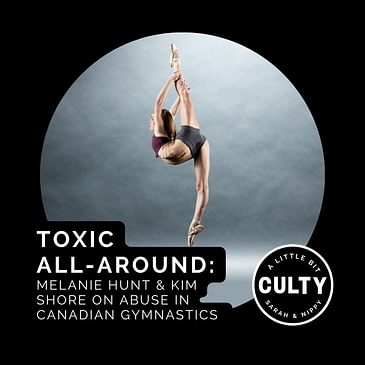This episode is sponsored by BetterHelp. Our guests today want you to know that culty shit is rampant in high performance gymnastics, and it didn’t all magically go away with Larry Nassar’s prison sentence. How are these abusive creeps still slipping through the system and continuing to get access to young athletes? How do you protect your kid from harm if they develop a passion for the sport? Kim Shore is the founder of Gymnasts for Change Canada, a collective that emerged on the heels of the #metoo movement in 2017 after several former elite athletes publicly shared their experiences of abuse. She’s joined by fellow advocate and former Canadian national team gymnast Melanie Hunt, who is sharing her own grisly account of psychological, physical, and sexual abuse at the hands of her coaches during her fifteen-year career. The duo chats with us about their stories and their shared mission of eradicating abuse from the sport that they love. Because the scariest thing about gymnastics should be the balance beam. This episode is a must-hear for parents who are raising student athletes in any sport, but be warned: It’s not easy listening. Audience discretion advised.
Show Notes:
Documentary: Broken: Inside the Toxic Culture of Canadian Gymnastics
Melanie’s story is included in this new documentary, now out on TSN.
CBC Article:
“Canadian gymnasts slam inaction by federal sports minister after toxic culture reports”
Hear Ye, Hear Ye:
The views and opinions expressed on A Little Bit Culty do not necessarily reflect the official policy or position of the podcast. Any content provided by our guests, bloggers, sponsors or authors are of their opinion and are not intended to malign any religion, group, club, organization, business individual, anyone or anything. Nobody’s mad at you, just don’t be a culty fuckwad.
Other Links:
Join A Little Bit Culty on Patreon
Get poppin’ fresh ALBC Swag
Support the pod and smash this link
Meet our glorious, wonderful sponsors
Cult awareness and recovery resources
CREDITS:
Executive Producers: Sarah Edmondson & Anthony Ames
Production Partner: Citizens of Sound
Producer: Will Retherford
Senior Producer: Jess Tardy
Theme Song: “Cultivated” by Jon Bryant co-written with Nygel Asselin
Learn more about your ad choices. Visit megaphone.fm/adchoices

